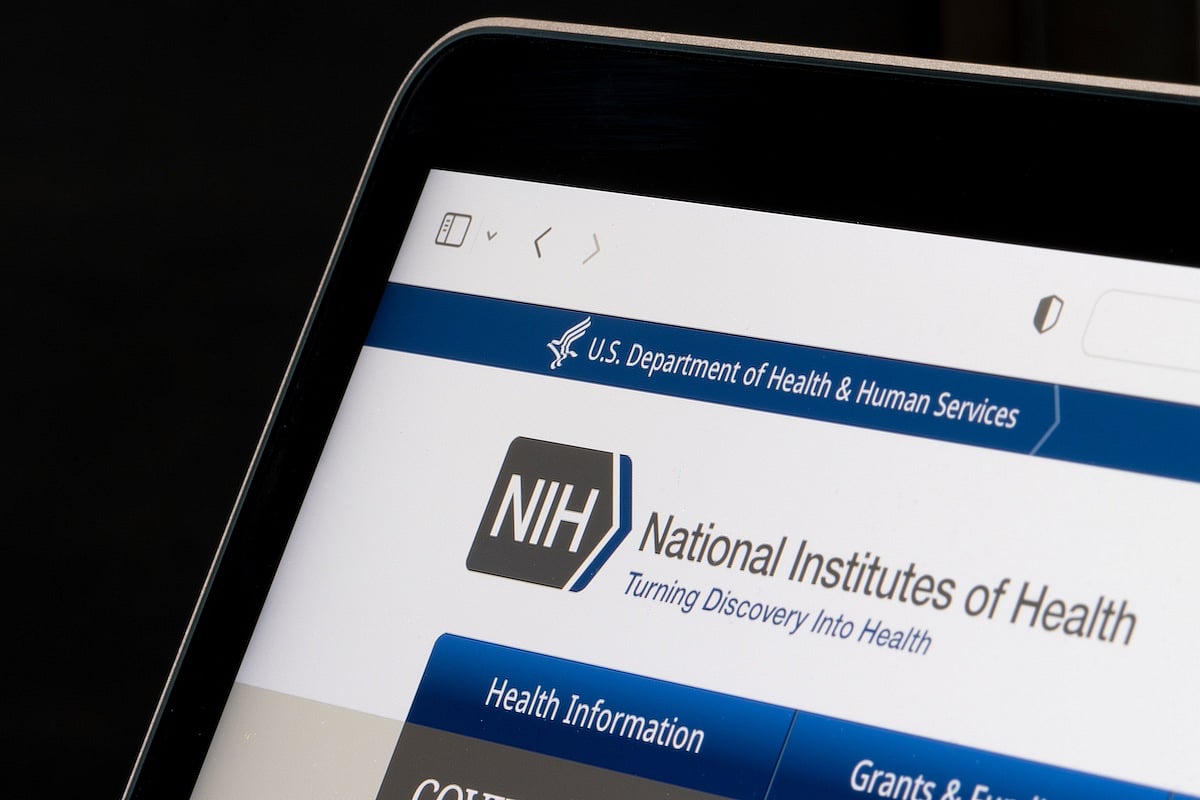Get Healthy!

- Carole Tanzer Miller
- Posted April 18, 2025
Top NIH Nutrition Researcher Quits, Citing Censorship Under Kennedy
A senior government health researcher has announced his retirement, accusing the National Institutes of Health (NIH) of censoring his latest findings on ultra-processed food.
Kevin Hall made the announcement Wednesday on X, ending 21 years at NIH.
Given the Trump administration's interest in his area of expertise -- how the food environment affects diet and diet affects physiology -- he said he had hoped to expand that research.
Instead, Hall wrote, "I experienced censorship in the reporting of our research because of agency concerns that it did not appear to fully support preconceived narratives of my agency's leadership about ultra-processed food addiction."
An HHS spokesman denied that Hall had been censorsed and accused him of "fabricating false claims."
Hall had written a letter late last month to Health and Human Services Secretary Robert F. Kennedy Jr. and HHS Director Dr. Jay Bhattacharya, according to CNN.
He asked to discuss ways to advance research into the root causes of metabolic disease and raised concerns about disruptions to his work and censorship of his findings. He said he never received a response.
"We have been hobbled on several occasions with intermittent inability to purchase food for our study participants or obtain research supplies," he told Kennedy and Bhattacharya in the March 28 letter, which was obtained by CNN. "The future of our studies seems bleak given the inability to replace outgoing trainees who are the workhorses of our research."
The letter continued: "I've also experienced incidences of censorship in my ability to discuss our research."
Specifically, Hall described an intervention by HHS regarding media coverage of a study published March 4 in the journal Cell Metabolism.
In the study, his team used brain imaging to investigate whether consuming ultra-processed milkshakes high in fat and sugar elicited similar reactions in the brain to addictive drugs.
"Surprisingly," they wrote, the shakes did not -- at least not large enough to show up on PET scans.
HHS turned down an interview request from The New York Times to discuss the study, Hall said in his letter, and contacted the reporter to downplay the findings "because our data might be viewed as failing to support preconceived HHS narratives about ultra-processed food addiction."
Kennedy has repeatedly pointed to ultra-processed foods as a culprit in the nation's declining health and obesity epidemic.
Hall also said his written responses to the reporter's questions about his study were edited and submitted without his OK. Copies of responses, which HHS denied had been edited, included a line suggesting the study was small, with 50 participants, according to CNN. Hall said that it was, in fact, the largest of its kind.
It wasn't the first time in his 21-year career that he was told not to present his findings about ultra-processed foods, Hall told CNN.
"There was some interference in a paper where I was told we had to change the content of the paper or I would have to remove myself as being an author," he said, adding he withdrew to avoid censoring a co-author who was not in the NIH.
The experiences, Hall told CNN, were "quite worrying to me" and "made me think if I was to continue and experience this, I'm going to end up really hating my job."
An HHS spokesperson called Hall's version of events "disappointing."
"Any attempt to paint this as censorship is a deliberate distortion of the facts," the spokesperson told CNN. "NIH scientists have, and will, continue to conduct interviews regarding their research through written responses or other means."
Hall said on X that he decided to accept early retirement to preserve health insurance for his family. "Resigning later in protest of any future meddling or censorship would result in losing that benefit," he wrote.
This is not the first time a Trump administration has been accused of attempting to interfere with communication from its health agencies, CNN recalled.
In 2020, a federal health official said they had been pushed to change language in the U.S. Centers for Disease Control and Prevention's weekly reports so as not to undermine Trump's political message during the COVID pandemic.
Reaction to Hall's retirement was swift and strong.
Marion Nestle, author of the book "Food Politics," called his early retirement "a national tragedy."
She described Hall's research linking ultra-processed foods to obesity as among the most important nutrition studies since the discovery of vitamins.
"I view his resignation under these circumstances as an act of extraordinary courage and scientific integrity," she wrote on her blog.
For his part, Hall said he doesn't know what he'll do next. In his letter to Kennedy and Bhattacharya and his post on X, he stressed that he'd like to return.
For now, however, his experiences "have led me to believe that NIH may be a difficult place to continue the gold-standard unbiased science required to inform the needed transformation of our food supply to make Americans healthy."
More information
Harvard Health has more about ultra-processed foods and their health effects.
SOURCE: CNN, April 17, 2025




